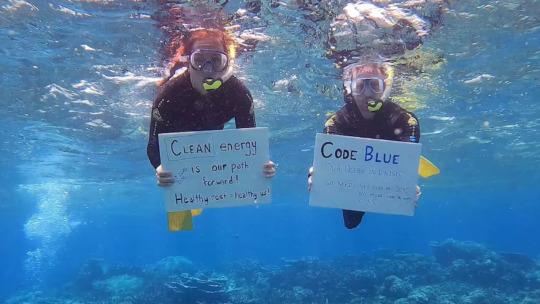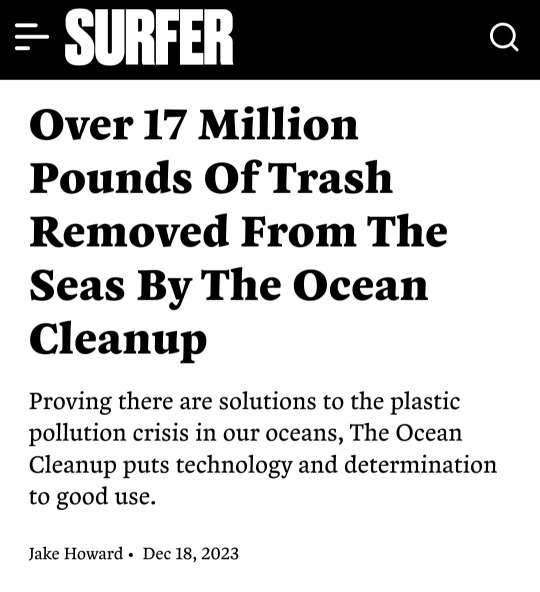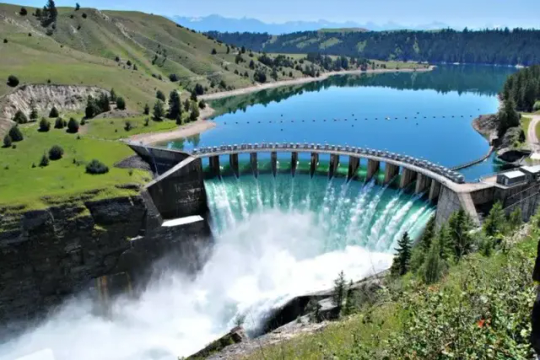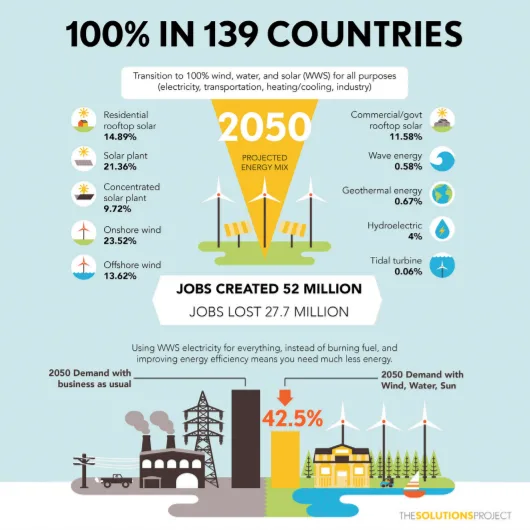Let's start with hope. Practical actions that prepare for a climate changed planet.
Don't wanna be here? Send us removal request.
Text

#climate change#global warming#mother earth#jail climate criminals#climate crisis#we want climate action now#klimawandel#changement climatique#klimakatastrophe#jailclimatecriminals#corporations#capitalism#late stage capitalism
682 notes
·
View notes
Text

Rejecting Federal dollars to help address climate issues that hurt people is how millionaire Republicans live their lives.
You should NEVER vote for Republicans if you value your future and your children's future.
#climate#climate change#jailclimatecriminals#jail climate criminals#qihou bianhua#klimawandel#cambiamenti climatici#cambiamento climatico#changement climatique#we want climate action now
616 notes
·
View notes
Text
"In short:
Education researchers say some Australian teachers still feel climate change is a "controversial" and difficult topic to teach.
The researchers urge an emphasis on practical ways to address climate change issues, to avoid triggering "eco-anxiety" in students.
"
In short:
Education researchers say some Australian teachers still feel climate change is a "controversial" and difficult topic to teach.
The researchers urge an emphasis on practical ways to address climate change issues, to avoid triggering "eco-anxiety" in students."
#climate crisis#climate change#jail climate criminals#we want climate action now#cambio climático#enviromental#qihou bianhua#climate solutions#climate#klimawandel
1 note
·
View note
Text
"
In short:
Education researchers say some Australian teachers still feel climate change is a "controversial" and difficult topic to teach.
The researchers urge an emphasis on practical ways to address climate change issues, to avoid triggering "eco-anxiety" in students."
#we want climate action now#jail climate criminals#climate crisis#climate change#enviromental#climate solutions#cambio climático#climate#qihou bianhua#klimawandel
1 note
·
View note
Text
"The crisis in our oceans threatens all life as we know it – including our own
13.11.23By Simon Bradshaw
I climb back on the boat, comparing notes with ocean scientist Professor Jodie Rummer – my snorkelling buddy for the day – on what we’d spotted below the sea’s surface. A white tip reef shark, a school of barracudas, giant clams, acres of bright blue staghorn corals. It doesn’t matter how many times you set eyes on a healthy coral reef – it blows you away every time.
We are up on a northern part of the Great Barrier Reef for the launch of Code Blue – the Climate Council’s first comprehensive report on climate change and our oceans.
Today was a stark reminder of just how much hangs in the balance – what we are losing, but what we still can and must fight to save.
We saw healthy patches of reef, some of which have been lovingly tended by marine scientists and assisted in their recovery. But we also saw vast tracts that can only be described as coral boneyards – areas that have never recovered from successive marine heatwaves.
The truth is that our Great Barrier Reef, and indeed our ocean at large, is in very serious trouble. As we head into another El Niño summer, there are well-founded fears of another devastating mass bleaching event.

Photographer: Tahn Miller, with divers Jodie Rummer and Simon Bradshaw.
More than half a billion people worldwide depend on coral reefs for their food, livelihoods, and the protection of their coastlines. Tragically, the damage to tropical coral reefs is but one aspect of a much larger crisis affecting our oceans. A crisis brought on by climate change, driven by the burning of coal, oil and gas.
The vast majority – around 93% – of the extra heat we have trapped by burning fossil fuels has ended up in the ocean. It’s an astonishing amount of energy – equivalent to detonating five Hiroshima atomic bombs every second, or enough energy to boil Sydney Harbour every eight minutes.
This has consequences. More frequent and severe heat waves are pushing coral reefs and other critical marine ecosystems to the brink. Ice sheets are melting at an accelerating rate, driving up sea levels and displacing coastal communities. The ocean circulations and currents that distribute heat, rainfall and nutrients around the planet are slowing and may even be headed for collapse."
#jail climate criminals#we want climate action now#climate change#cambio climático#climate crisis#prepare for climate change#greenwashing#big oil#fossil fuel industry#plastic#climate washing#floods#climate activism#calentamiento global#medio ambiente#IPPC#climate hope#sea level rise#late stage capitalism#victims of capitalism#klimakatastrophe#klimawandel#changement climatique#qihou bianhua#izmeneniye klimata#cambiamento climatico#気候変動#जलवायु परिवर्तन#jalavaayu parivartan#das Alterações Climáticas
0 notes
Text
"The New South Wales coastline is increasingly at risk of severe natural disasters, with the state on track for an annual damage bill of $9bn by 2060 if the effects of climate change and population growth are not mitigated.
Fresh analysis from the NSW Reconstruction Authority revealed that while the highest natural hazard risks historically were from fires and heatwaves – and, at the moment, storms and floods – coastal hazards will dominate in years to come."
#jail climate criminals#we want climate action now#climate change#cambio climático#climate crisis#prepare for climate change#greenwashing#big oil#fossil fuel industry#plastic#climate washing#floods#climate activism#calentamiento global#medio ambiente#IPPC#climate hope#sea level rise#late stage capitalism#victims of capitalism#klimakatastrophe#klimawandel#changement climatique#qihou bianhua#izmeneniye klimata#cambiamento climatico#気候変動#जलवायु परिवर्तन#jalavaayu parivartan#das Alterações Climáticas
1 note
·
View note
Text
youtube
#climate crisis#youtube#we want climate action now#jail climate criminals#climate change#cambio climático#changement climatique#big oil#floods#climate activism
5 notes
·
View notes
Text
A non-profit organization in B.C. says it has asked Canada’s Competition Bureau to investigate athletic-wear giant lululemon, arguing the company is misleading customers about its environmental impacts. A statement from Stand.earth says lululemon has been using the slogan “Be Planet” as part of its “impact agenda” released in 2020, but the company’s own reports reveal a doubling of greenhouse-gas emissions since then. lululemon’s 2022 impact report says its “products and actions help lead (the) industry toward a climate-stable future where nature and people thrive.” It also says the Vancouver-based company aims to meet a series of climate action targets by 2030, including a 60-per-cent reduction in emissions intensity for “Scope 3” operations, which encompasses the making and shipping of clothing globally.
Continue Reading
Tagging @politicsofcanada
#cdnpoli#canada#canadian politics#canadian news#lululemon#greenwashing#climate change#carbon emissions#we want climate action now#jail climate criminals
60 notes
·
View notes
Text
Research in degrowth is interested in a “socially sustainable and equitable reduction (and eventually stabilisation) of society's throughput” while ensuring wellbeing. Currently postgrowth/degrowth scenarios, while politically complicated, are humanity’s best bet to avoiding a devastating 1.7 degrees of warming by 2030, as predicted by the latest IPCC report. This is because “degrowth scenarios minimize many key risks for feasibility and sustainability compared to technology-driven pathways, such as the reliance on high energy-GDP decoupling, large-scale carbon dioxide removal and large-scale and high-speed renewable energy transformation”. Importantly, the focus of degrowth lies in limiting the economic expansion of the Global North to give people in the Global South the chance to meet their material needs for wellbeing within the bounds of the planet. Degrowth is thus about reorienting the economy towards societal welfare – this might even entail nominal economic growth in the Global South in the short-term, as material and energy expansion is needed to provide for human needs. However, the key point is limiting economic expansion beyond what is needed for societal welfare to avoid ecological collapse – starting with the affluent North. Degrowth in the Global North is needed most of all for the “buy-in” of the Global South to long-term social-ecological sustainability. Current lifestyles in the Global North are deeply unsustainable and unjust. Replicating the old pattern of industrial development of the Global North in the Global South will place all (both Global North and Global South) outside the safe operating space for humanity with planetary boundaries.
From “Decent work and economic growth” to “Sustainable work and economic degrowth”: a new framework for SDG 8
#degrowth#sustainability#sustainable development goals#climate change#this was one massive paragraph so i broke it up for easier reading#we want climate action now#jail climate criminals#climate crisis#cambio climático#changement climatique
73 notes
·
View notes
Text
*article is dated 25 Dec 2023
*article is dated 29 Dec 2023 (and no, it's not the same method as the article above)

https://www.surfer.com/culture/17-million-pounds-trash-removed-ocean-cleanup
#good news#climate change#pollution#the ocean cleanup#plastics#sea#conservation#fish#we want climate action now#jail climate criminals
78 notes
·
View notes
Text
The new 'compost obligatoire' rules came into force on 1 January 2024. Here's what they entail.
As of 1 January 2024, organic waste recycling is mandatory in France under new 'compost obligatoire' rules.
With support from the government’s Green Fund, municipalities must provide residents with ways to sort bio-waste, which includes food scraps, vegetable peels, expired food and garden waste.
Households and businesses are required to dispose of organic matter either in a dedicated small bin for home collection or at a municipal collection point. Previously, only those who generated over five tonnes of organic waste per year were required to separate it.
The waste will then be turned into biogas or compost to replace chemical fertilisers. Alternatively, it can be composted at home.
The obligation is currently on local authorities to provide an easy means for households to compost or separate organic waste.
While facilities are rolled out, there will not be fines imposed for non-compliance. It is yet to be seen whether stricter rules will be imposed in future.
One-third of household waste is bio-waste
Organic waste from food and gardens accounts for almost one-third of household waste. When it is mixed with other rubbish, it typically ends up in landfills or incinerators, where it produces heat-trapping greenhouse gases like methane and CO2.
Food waste is responsible for about 16 per cent of the total emissions from the EU food system, according to the European Commission. Globally, food loss and waste generates around 8 per cent of all human-caused emissions annually, the UN says.
It can also contaminate packaging destined for recycling like paper, plastic and glass.
In 2018, only 34 per cent of the EU’s total bio-waste was collected, leaving 40 million tonnes of potential soil nutrients to be discarded, according to NGO Zero Waste Europe.
In France, an estimated 82 kg of compostable waste per person is thrown away each year.
Is bio-waste separation mandatory in other European countries?
Under the EU’s Waste Framework Directive, bio-waste collection is being encouraged this year, but it stops short of setting mandatory targets.
In many European countries, organic waste separation has already been implemented at the municipal level.
Milan in Italy has been running a residential food waste collection programme since 2014. Households were given dedicated bins and compostable bags to kick off the scheme.
Elsewhere, taxes or bans on incinerating bio-waste have encouraged similar schemes, with separate bins and home composting widespread in Austria, the Netherlands and Belgium.
The UK announced plans to roll out separate food waste collection in 2023. It remains voluntary for households in England, but is more strictly enforced in Wales and for business owners.
How to sort your bio-waste
Ideally, all waste - including organic matter - should be kept to a minimum.
This can be achieved through careful meal planning. Consuming, freezing or preserving food before it expires along with using every part of an ingredient also help to reduce waste. Some food waste can even be repurposed into animal feed.
Any food waste that cannot be saved or repurposed should be either composted or separated for collection. This includes uneaten food scraps, baked goods, dairy products, eggshells, fruit and vegetables and their peels, mouldy food, pet food, raw and cooked meat and fish, bones, tea and coffee grounds.
Liquids, non-food products and packaging should not be placed in bio-waste bins.
-via EuroNews.Green, January 2, 2024
#france#composting#eu#european union#organic waste#biofuels#recycling#sustainability#food#food waste
187 notes
·
View notes
Text
Jail climate criminals. We want climate action now.
#climate change #cambio climático #climate crisis #prepare for climate change #greenwashing #big oil #fossil fuel industry #plastic #climate washing #floods #climate activism #calentamiento global #medio ambiente #IPPC #prepare for climate change #climate hope #sea level rise #late stage capitalism #victims of capitalism #klimakatastrophe #klimawandel #changement climatique #qihou bianhua #izmeneniye klimata #cambiamento climatico #気候変動 #जलवायु परिवर्तन #jalavaayu parivartan #das Alterações Climáticas #COP28

Excerpt from this story from Sierra Club:
Yesterday, the United States Postal Service (USPS) and White House officials showcased new electric vehicle charging stations at its South Atlanta Sorting and Delivery Center, representative of charging stations that will be installed at hundreds of centers across the country.
The Atlanta event also included new electric delivery vans manufactured by Ford that will make up USPS’ electric fleet, starting in Georgia and expanding in locations across the country.
USPS received $3 billion in funding from the historic Inflation Reduction Act, which will be used to electrify its fleet, in addition to $40 billion in the Postal Service’s newly announced 10-Year Delivering for America plan.
The USPS has committed to 100 percent electric truck purchases by 2026, a result of public and legal advocacy from environmental groups and a major shift in the agency’s electrification strategy over the past several years. Atlas Policy found that the electrification of delivery trucks could save USPS $4.3 billion and that 97 percent of vehicles would have a lower total cost of ownership than trucks running on gas.
#jail climate criminals#we want climate action now#climate change#cambio climático#climate crisis#prepare for climate change#greenwashing#big oil#fossil fuel industry#plastic#climate washing#floods#climate activism#calentamiento global#medio ambiente#IPPC#climate hope#sea level rise#late stage capitalism#victims of capitalism#klimakatastrophe#klimawandel#changement climatique#qihou bianhua#izmeneniye klimata#cambiamento climatico#気候変動#जलवायु परिवर्तन#jalavaayu parivartan#das Alterações Climáticas
25 notes
·
View notes
Text
Jail climate criminals. We want climate action now.
#climate change #cambio climático #climate crisis #prepare for climate change #greenwashing #big oil #fossil fuel industry #plastic #climate washing #floods #climate activism #calentamiento global #medio ambiente #IPPC #prepare for climate change #climate hope #sea level rise #late stage capitalism #victims of capitalism #klimakatastrophe #klimawandel #changement climatique #qihou bianhua #izmeneniye klimata #cambiamento climatico #気候変動 #जलवायु परिवर्तन #jalavaayu parivartan #das Alterações Climáticas #COP28
#jail climate criminals#we want climate action now#climate change#cambio climático#climate crisis#prepare for climate change#greenwashing#big oil#fossil fuel industry#plastic#climate washing#floods#climate activism#calentamiento global#medio ambiente#IPPC#climate hope#sea level rise#late stage capitalism#victims of capitalism#klimakatastrophe#klimawandel#changement climatique#qihou bianhua#izmeneniye klimata#cambiamento climatico#気候変動#जलवायु परिवर्तन#jalavaayu parivartan#das Alterações Climáticas
0 notes
Text
Jail climate criminals. We want climate action now.
#climate change #cambio climático #climate crisis #prepare for climate change #greenwashing #big oil #fossil fuel industry #plastic #climate washing #floods #climate activism #calentamiento global #medio ambiente #IPPC #prepare for climate change #climate hope #sea level rise #late stage capitalism #victims of capitalism #klimakatastrophe #klimawandel #changement climatique #qihou bianhua #izmeneniye klimata #cambiamento climatico #気候変動 #जलवायु परिवर्तन #jalavaayu parivartan #das Alterações Climáticas #COP28
#jail climate criminals#we want climate action now#climate change#cambio climático#climate crisis#prepare for climate change#greenwashing#big oil#fossil fuel industry#plastic#climate washing#floods#climate activism#calentamiento global#medio ambiente#IPPC#climate hope#sea level rise#late stage capitalism#victims of capitalism#klimakatastrophe#klimawandel#changement climatique#qihou bianhua#izmeneniye klimata#cambiamento climatico#気候変動#जलवायु परिवर्तन#jalavaayu parivartan#das Alterações Climáticas
85 notes
·
View notes
Text
Jail climate criminals. We want climate action now.
#climate change #cambio climático #climate crisis #prepare for climate change #greenwashing #big oil #fossil fuel industry #plastic #climate washing #floods #climate activism #calentamiento global #medio ambiente #IPPC #prepare for climate change #climate hope #sea level rise #late stage capitalism #victims of capitalism #klimakatastrophe #klimawandel #changement climatique #qihou bianhua #izmeneniye klimata #cambiamento climatico #気候変動 #जलवायु परिवर्तन #jalavaayu parivartan #das Alterações Climáticas #COP28
Elon Musk famously claimed that we could power the world with a single 100x100 mile square of solar panels.
To summarize (as I have before, he's wrong, but not for insurmountable reasons. We heed more efficient storage systems, and we don't have power cables efficient enough to transmit power hundreds of miles.
We can get around the second problem by going the opposite of one bit solar farm - we do a ton of little ones. And parking lots are a great place to start.
Everybody gets a covered parking space, and all that real estate starts generating power. Seems like a plan.
Expensive to set up, and there's an upkeep cost, but it's doable.
And the big flat roofs of the malls and warehouses are the next place to go.
#solar power#jail climate criminals#we want climate action now#climate change#cambio climático#climate crisis#prepare for climate change#greenwashing#big oil#fossil fuel industry#plastic#climate washing#floods#climate activism#calentamiento global#medio ambiente#IPPC#climate hope#sea level rise#late stage capitalism#victims of capitalism#klimakatastrophe#klimawandel#changement climatique#qihou bianhua#izmeneniye klimata#cambiamento climatico#気候変動#जलवायु परिवर्तन#jalavaayu parivartan
46 notes
·
View notes
Text
jail climate criminals #we want climate action now
#climate change #cambio climático #climate crisis #prepare for climate change #greenwashing #big oil #fossil fuel industry #plastic #climate washing #floods #climate activism #calentamiento global #medio ambiente #IPPC #prepare for climate change #climate hope #sea level rise #late stage capitalism #victims of capitalism #klimakatastrophe #klimawandel #changement climatique #qihou bianhua #izmeneniye klimata #cambiamento climatico #気候変動 #जलवायु परिवर्तन #jalavaayu parivartan #das Alterações Climáticas #COP28
Countries That Generate 100% Renewable Energy Electricity

Pictured: Hydropower is the most widely used source of renewable energy-generated electricity. This dam is located near Polson, Montana.
Is 100% Renewable Resource-Generated Electricity Possible?
"With concerns growing regarding burning fossil fuels and their connection to global warming, a great debate is occurring regarding the feasibility of producing electricity entirely from non-carbon emitting green renewable energy sources such as geothermal, hydroelectric, wind, and solar. Skeptics and naysayers claim that achieving such a goal is impractical, would destroy the economy, and is in the realm of pie-in-the-sky thinking.
But is it actually impractical and unattainable? The answer is clearly "no" since there are already several countries that generate 100% of the electricity they use from renewable sources of energy. There are also many other countries that obtain over 90% of the electricity they use from renewable energy sources. Despite the negative rhetoric by some, there’s nothing impractical about using renewable energy to generate electricity on a grand scale.
The Countries Leading the Way to a 100% Renewable Energy Electricity Future
The following is a list of countries that are leading the world into the new frontier of economies that run their electrical grids either entirely or nearly entirely on renewable energy per a 2018 report by the International Renewable Energy Association (IREA) and the U.S. Energy Information Administration (EIA) statistics. This list and the percentages are subject to change over time, but it provides a good snapshot of just how practical renewable energy currently is for electricity generation.
Iceland obtains 100% of the electricity it needs from renewable energy sources. Iceland is somewhat unique since volcanic activity on the island provides a significant geothermal energy source that is utilized to provide approximately one-quarter of the country’s electricity. The remaining three quarters are provided by hydro-power.
Paraguay obtains 100% of the electricity it uses from renewable sources. Huge hydropower dams provide all of Paraguay's electricity needs, as well as supply neighboring Argentina and Brazil with electricity.
Costa Rica is another country leading the way towards 100% renewable-produced electricity. During 2018, Costa Rica met all of its electricity needs using renewable energy sources such as hydro-power, geothermal, biomass, wind, and solar for 300 days in a row.
Ethiopia, Kenya, Namibia, Norway, Tajikistan, and Uruguay are countries currently generating greater than 90% of the electricity they use from renewable energy sources. Some of these countries are working towards running their electric networks entirely from renewable energy.
Some things stand out from the list of countries leading the way in electricity generated from renewable energy.
They are relatively small countries.
They have abundant renewable natural resources, particularly abundant water resources available to generate hydro-power.
The list includes both wealthy developed and poor developing countries.
The fact that both developed wealthy countries and poor developing countries are leaders in renewable energy-produced electricity indicates that the cost of constructing renewable energy resources is not a limiting factor. In fact, developing countries can justify the capital cost of building renewable energy sources of electricity due to the fact that the operating costs are relatively low and predictable (not subject to commodity price swings), and renewable energy allows a country to be self-sufficient in meeting its electricity needs.
Large Developed Countries Can Also Produce 100% Of Their Electricity From Renewable Energy
Critics and naysayers might say that while these achievements by small countries are impressive, implementing renewable energy on a large scale is impractical for larger developed countries. But is it really impractical?
Cost and technological barriers are not what they once were for renewable energy. In fact, costs for renewable energy continue to decline year after year, and renewable energy technologies continue to develop and become more efficient. Many countries have not even come close to tapping their renewable energy potential or even tried some of the technologies available, such as electricity generated by wave or tidal power. Additionally, the argument that renewable energy is only useful when it is being generated is becoming irrelevant since large utility-scale batteries are now available that have the capability to store electricity generated by renewable energy and allow it to be used when needed.
Clearly, the answer is yes. Large developed countries can produce 100% of the electricity they need from renewable sources. It is only a matter of the will and investment at this point to make the changeover from fossil fuel-generated electricity to renewable energy electricity generation. The technical barriers are not as great as naysayers claim, as proven by smaller countries that have already reached the 100% threshold. Moving towards 100% renewable energy sources of electricity will become easier over time as wind, solar, and other renewables become more efficient and large utility-scale battery storage technologies become capable of storing larger quantities of energy for use when needed.

Pictured: Researchers lay out a plan for nearly 140 countries that could be powered 100 percent by renewable energy by 2050. spectrum.ieee.org
The City of Los Angeles Leads the Way in the U.S. With Inexpensive Solar
Various forms of renewable energy have experienced significant cost reductions to a point at which they are competitive and, in some cases, cheaper than traditional electrical energy sources such as coal, oil, and natural gas. This cost reduction trend will accelerate the change over to renewable sources of electricity. For example, the City of Los Angeles signed a deal in July 2019 for a large solar electricity array that will provide 7% of the city's electricity by 2025 at only two cents per kilowatt-hour (kWh). This is far cheaper than fossil fuel-derived electricity.
In addition to being cost-competitive, the practicality and reliability of renewable energy are poised to make major advances as large utility-scale battery technologies are rolled out that can be used to capture renewable energy when it is created, so the electricity can be used at a later time when needed. The Los Angeles solar array project includes utility-scale battery backup at a cost of 1.3 cents per kWh, so the electricity generated by the sun will be available even when the sun is not shining.
Los Angeles has a goal of achieving 100% renewable electricity generation by 2050. This solar contract is a big step toward achieving their goal."
-via TurboFuture, February 21, 2023
#jail climate criminals#we want climate action now#climate change#cambio climático#climate crisis#prepare for climate change#greenwashing#big oil#fossil fuel industry#plastic#climate washing#floods#climate activism#calentamiento global#medio ambiente#IPPC#climate hope#sea level rise#late stage capitalism#victims of capitalism#klimakatastrophe#klimawandel#changement climatique#qihou bianhua#izmeneniye klimata#cambiamento climatico#気候変動#जलवायु परिवर्तन#jalavaayu parivartan#das Alterações Climáticas
323 notes
·
View notes
Text
jail climate criminals #we want climate action now
#climate change #cambio climático #climate crisis #prepare for climate change #greenwashing #big oil #fossil fuel industry #plastic #climate washing #floods #climate activism #calentamiento global #medio ambiente #IPPC #prepare for climate change #climate hope #sea level rise #late stage capitalism #victims of capitalism #klimakatastrophe #klimawandel #changement climatique #qihou bianhua #izmeneniye klimata #cambiamento climatico #気候変動 #जलवायु परिवर्तन #jalavaayu parivartan #das Alterações Climáticas #COP28
As the world continues to experience a worsening climate crisis with record-breaking temperatures, scientists have developed a new, highly reflective glass coating that may help cool a rapidly warming Earth. In theory, the coating — a slurry-like mixture of inexpensive glass and aluminum oxide particles — could reflect high amounts of sunlight off of the surfaces on which it is painted, such as roofs of buildings and roads.
Continue Reading.
#jail climate criminals#we want climate action now#climate change#cambio climático#climate crisis#prepare for climate change#greenwashing#big oil#fossil fuel industry#plastic#climate washing#floods#climate activism#calentamiento global#medio ambiente#IPPC#climate hope#sea level rise#late stage capitalism#victims of capitalism#klimakatastrophe#klimawandel#changement climatique#qihou bianhua#izmeneniye klimata#cambiamento climatico#気候変動#जलवायु परिवर्तन#jalavaayu parivartan#das Alterações Climáticas
118 notes
·
View notes